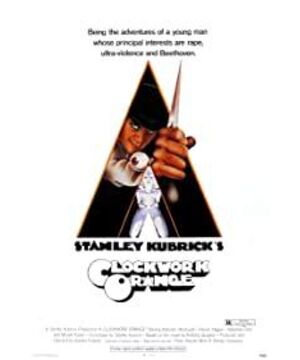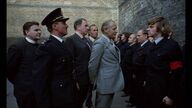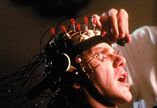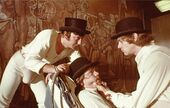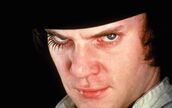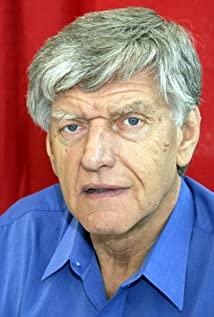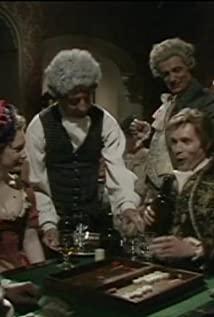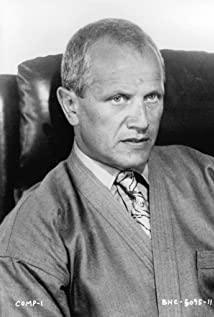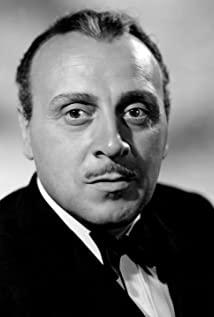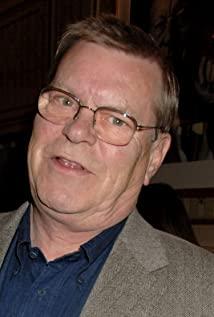Kubrick's works have various themes, including science fiction films, horror films, romance films, and costume films, but no matter what the subject matter is, the theme is always the same, that is, the exploration of human nature under the giant structure of "society" or "government". Distortion and deformation, coupled with Kubrick's daring to challenge the existing moral framework and the use of transcendent shooting techniques, so his works often become the object of analysis of cultural studies, and the learning model of younger directors.
Kubrick's works include "Lolita", "Spartacus", "The Shining", "Eyes-Opening", etc., but his three works in the 1960s and 1970s are particularly famous, respectively. For "Dr. Strangelove" in 1963, "2001: A Space Odyssey" in 1968 and "A Clockwork Orange" in 1972, these three works are about the evolution of human nature in the future world with the evolution of technology and politics. The changes that took place are therefore known as Kubrick's "Future Trilogy".
The original text of "Clockwork Orange" is clockwork orange, which refers to a strange thing that does not exist in reality. It means "freak" when used in people. A Clockwork Orange is based on the novel of the same name by Anthony Burgess. The theme is similar to Aldous Huxley's "Brave New World" in 1932 and George Orwell's "1984" in 1948, which is about a future world where human beings are under a high degree of mental control. The horror caused by it has strong allegory and irony.
The whole film "A Clockwork Orange" is divided into three parts. The first part describes a young man with an evil character, Alex, who leads three friends to do bad things together. Alex is passionate about violence and pornography. He is the dream of the family and the cancer of the society. Alex's only hobby is Beethoven's music, especially the No. 9 Symphony.
The second part tells the story of Alex being imprisoned for murder. Under the initiative, he received medical treatment in exchange for freedom. Alex was forced to watch a series of violent and pornographic videos, and was given drugs to induce a distressing reaction beforehand. Through behaviorist aversion therapy, as long as Alex produces violent or pornographic behavior, he involuntarily falls into extreme pain. However, in the process of therapy, Beethoven's Ninth Symphony is used as the background music, which has also become an inducement. One of the sources of suffering.
The third part tells that after two weeks of treatment, Alex was found to have eradicated "evil" and was released. However, Alex, who returned to society, was beaten by helpless old people and abused by old friends and could not protect himself. One of Alex's previous victims even imprisoned Alex and repeatedly broadcasted Beethoven's Ninth Symphony, causing Alex to commit suicide by jumping off a building. When Alex was seriously injured in hospital, a series of political struggles exposed the government's mental persecution of Alex. The media criticized this violent personality transformation and blamed Alex's suicide on the government's totalitarian methods. Alex received generous compensation and received treatment again to "restore" his evil nature. To the music of Symphony No. 9, while imagining various violent and pornographic scenes, Alex happily accepted the photo interview of a large number of reporters.
In the film, a satirical criticism of the issue of "violence" is put forward. Forcing bad people to undergo transformation is totalitarian violence, and it is the violence of the government against individuals; and when bad people become good people, other "good people" are used in the name of revenge. This good guy who is no longer a bad guy commits violence, it is social violence. Violence is violence in whatever name it takes and does not change its character just because the perpetrator is the government and the previous victim. In a society where the strong eat the weak, transforming character and distorting human nature cannot eradicate violence, but only redefine violence by means of violence, and redefine who plays the victim and who plays the perpetrator in this violent world. Moreover, the violence of rulers and of society as a whole is more feared and impossible to resist than violence of individuals.
"A Clockwork Orange" is not only full of irony in the story itself, but also the director's shooting techniques are profound. Instead of using a realistic approach to reflect the horror of violence, Kubrick uses a fantasy-filled, fairy-tale style to express the film's connotations. In the movie, it is full of colorful colors, and the characters and scenery are colorful, just like the pictures in a fairy tale. The costumes of the characters have a Zhuo Bolin-style amusing, and the dialogue is read out in an exaggerated way of a stage play, with voiceovers interspersed from time to time. The film is filled with a lot of violence and pornography, but Kubrick uses super-fast fast-moving, comic-style pictures, all kinds of classical music and light songs to convert it into a funny style. The ridiculous arrangement of drinking milk in a milk bar and taking pleasure in biblical depictions of violence and pornography conveys the irony of the entire film.
From a current perspective, the themes explored in A Clockwork Orange are not new, but nearly forty years ago, no other film work had delved into the question of personal and social will. Personal will is an important feature of what makes a person a human being. However, when the social will overrides the personal will and deprives the individual of his free will in the name of justice—even if the individual is deprived of the right to choose to be a bad person, the dignity of human nature will be reduced. If it is lost, the boundaries between humans and animals will also cease to exist. This work was banned in the UK not long after it was released, and it was not lifted until 2000. The fundamental reason is that the film took a very tricky angle. In Brave New World and 1984, the social will is extremely huge, and all the people are managed as non-human individuals, so the right and wrong between them can be easily recognized and understood. However, in "A Clockwork Orange", one side is a guy who is bad to the core, and the other is a ruler who takes the correction of evil as the starting point, but the filming method of the film points to a thinking direction, that is, "evil" is also a manifestation of human nature. The act of correcting is suppressing and distorting human nature, and if it is further derived from this, it is that the intention of legal norms and education systems is to conceal evil and promote good, and its essence is also a kind of social violence, depriving human nature and allowing "evil" Free play is in line with human nature!
After the release of "A Clockwork Orange", there have been many violent incidents in the UK, which many believe to be related to the film's glorifying violence and misleading film theme, which is how the film can last for a long time. One of the main reasons for the attention. In any case, "human nature" has always been Kubrick's concern, and the distortion and suppression of human nature under scientific progress is his constant worry. Kubrick always boldly challenges social taboos, and has the courage to go beyond the limits The way to express the connotation of the work, and this is the reason why Kubrick can make a name for himself in the history of film.
View more about A Clockwork Orange reviews


